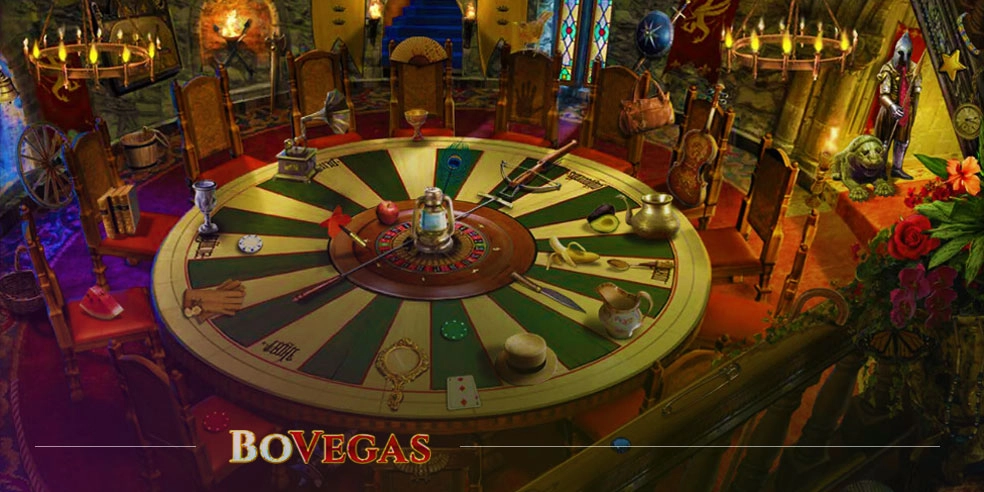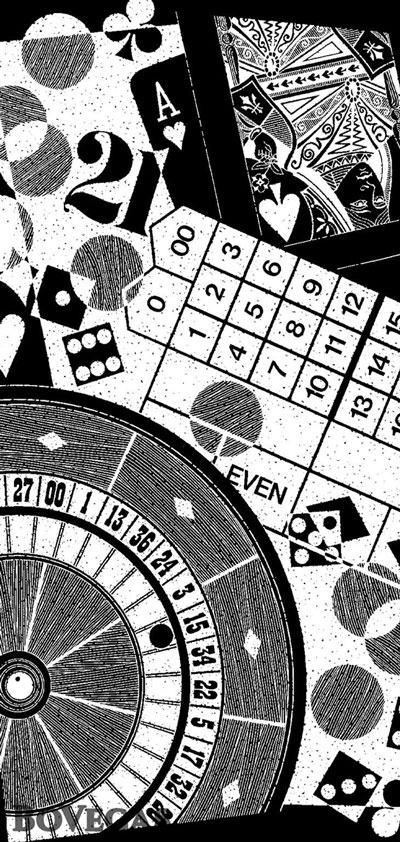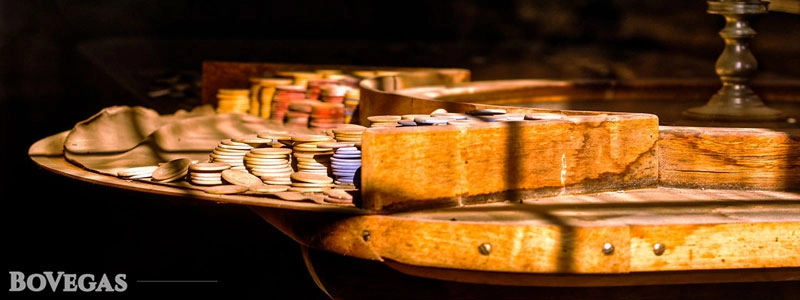



The history of the roulette game is truly fascinating. It is much more than yet another one among a host of games of chance that people have invented. In fact, this game has been immersed in, and in turn has reflected, many essential moments in the history of human society. It is connected to many important and meaningful events and social processes, and indeed, even the very nature of human beings ourselves! Yes, this very same human nature that so many of us are devoted to examining and exploring, in order to answer that one simple question: who are we then, really?
 In a way, we are all gamblers, staking different bets throughout our lives. And as a species have also been inclined to invent different games of chance – hence the dizzying array of popular casino games to be found in our world; such games have been a custom since time immemorial! However, the precise idea betting on a number, as such, is relatively new and cannot be traced before the 17th century; although it was not until the 18th century when we saw a real boom for this one! And it was the roulette’s wheel unique manner of telling which bet is going to win that helped it reach the pinnacle of number-betting games by its special method of telling us which bet is going to win.
In a way, we are all gamblers, staking different bets throughout our lives. And as a species have also been inclined to invent different games of chance – hence the dizzying array of popular casino games to be found in our world; such games have been a custom since time immemorial! However, the precise idea betting on a number, as such, is relatively new and cannot be traced before the 17th century; although it was not until the 18th century when we saw a real boom for this one! And it was the roulette’s wheel unique manner of telling which bet is going to win that helped it reach the pinnacle of number-betting games by its special method of telling us which bet is going to win.
Before that, the banker used to pull the winning number from a bag. The players gathered around a table with the checkered and numbered board where they had placed their wagers, and watched the process eagerly – just like roulette players do nowadays, as they watch the ball land. These old and simple no-wheel number-betting games, the precursors to roulette, were called differently – cavagnole, biribi or biribissi. These names tell you nothing about the origins of such a game, but historical records indicate they came to France from Italy.
The very idea of betting on a number is obviously related to the fact that numbers as such began to be even more important at the time roulette was developing: the period some researchers would call the ‘first techno-revolution’ – when science and technology underwent an unprecedentedly fast process of development. This agenda, in turn, resonated with some more ancient, mystical and even superstitious beliefs about how numbers rule the world and tell you what is going to happen – at least if you are not profanely minded, and know how to use the numbers properly, of course! Add here the risk-taking and adventurous spirit of this epoch, or rather “epoque” – and you can see that the invention of French roulette was indeed inevitable.
Some people believe that it was Blaise Pascal who had invented the roulette wheel in the 17th century when he was trying to invent a perpetuum mobile (the perpetual motion machine) while experimenting with various devices that were able to sustain different kinds of mechanical movements. However, the attribution of the Roulette wheel to Pascal’s genius has never been historically confirmed. Nor did he himself ever lay claim to the invention, by the way!
Some other roulette game scholars say that the game originates from China. They refer to the Chinese magic square, where the numbers from 1 to 36 are placed in 6 rows and 6 columns a very specific way. I.e., the sums of the numbers counted on horizontal, vertical and diagonal lines are the same and equal to 111; while the total sum of the matrix is 666. But, on top of the fact that we do not know how the Chinese played this game, we have no facts showing that the magic square was even a game at all. It was a square and not round, it had neither “0” nor “00,” and it was related to the magic of numbers and Feng Shui tradition and not to gambling. And anyway, the actual idea of a roulette wheel, as such, does not show a single trace of any supposed Chinese origin…
In fact, the gaming wheel is said to have been invented in France in 1720, quite a long time before the roulette game first took its familiar form, so common to us today. For decades, the wheel was used to play simple “Roly-Poly” and “Even Odds” games with the same idea of spinning the wheel and betting on the outcome. The wheel coexisted with cavagnole betting tables for decades, and only in the late XVIII century did they somehow ‘meet,’ in order to finally bring the roulette game to life. But hardly we are going to find out when and how exactly this happened.
Interesting to mention that as early as in 1756 such games as “dice, hoca, faro, and roulette” were prohibited in French Quebec, and the respective regulations were published, but the rules of the roulette game that was banned back then in Quebec are not known to us.
Gambling was under serious pressure in many European countries, as the venues where people from the lower classes used to gather for playing often provoked debauchery and even public unrest. But by the end of the 18th century, policies changed: strict gambling laws were introduced and wagering games then saw a revival all across Europe, with French roulette being one of the key engines of this process.
In the early 1800s, the color green was first used to mark zeroes, and the wheel acquired its modern form. Back then, there had been both “0” and “00” pockets on the wheel, and it was called “French roulette.” But in 1843, the twin brothers François and Louis Blanc introduced the wheel with no “00” in the casino they ran in Bad Homburg, a spa resort in Germany. The idea was to reasonably lower the house edge (from 5.26% to 2.70%) in order to attract more gamblers, and thus to compete with the famous Paris casinos. The plan was a total success, and Bad Homburg soon became one of the best-known European gambling centers!

The legend says that François Blanc has sold his soul to the devil to learn this secret; allegedly because the sum of the numbers of the roulette wheel is 666, which is known to be a ‘devil’s number,’ or ‘the number of the Beast. But the sum is the same either with double zero or without it, and we know that roulette wheel had been known long before the Bad Homburg success story. And actually, no “00” was only half of the Blanc’s secret! The other half was that they made this innovation widely known, and took good care to market it properly. And that, in the end, was how European roulette finally came on the scene!
It’s interesting to know that in the 1860s, gambling was banned in Germany; so François Blanc, already known as “the Magician of Homburg,” decided to move his business. He was looking for a warmer place, with no seasonal business variations. And it was Monaco that he ended up choosing in the end. Because not long before Blanc moved away, the prince of Monaco fully legalized gambling businesses. And so it was that François and Louis Blanc came to invest considerable sums of money in the development of the resort, successfully turning it into what it is nowadays – one of the world’s most famous gambling centers!
The flabbergasting success of their Monaco venture meant that François Blanc shortly came to be known as the Magician of Monte Carlo. But this was hardly a case of magic, nonetheless! It was more about all the advertising, wise investment, and infrastructural development the Blanc brothers ploughed into their new venture. So, and perhaps for the very first time in history, the roulette wheel became the main reason to build roads and railways – and these huge investments really paid for themselves in the end, as history has shown!
The single zero “European” roulette was then successfully exported globally, and only in the US, Canada, South America and in the Caribbean region the double zero roulette remained the dominant form of the game. We generally call this double zero wheel “American;” while in fact, it is still the old French wheel that was used before the innovation of François Blanc!
It was French colonists who first brought roulette to Louisiana before this exciting innovation from the Blancs. It was the old double zero French roulette! But social moods and spirits in the New World have been different. While in Europe, gambling houses lowered their house edge from 5.26% to 2.70% in order to get more customers, in America the trend was quite the opposite: the houses decided that 5.26% was not enough, and even tried to increase it! There have been several modifications to the rules and even attempts to tilt the game – and yes, the players also tried to cheat heavily. This all called for strict regulations and control, and in the end, the double zero version of the roulette with the current rules came to be established as the dominant “American” version of the game.
The popularity of the game of roulette has gone through many upward and downward trends, as well as through various periods where it was either banned or promoted. The era of the Internet has changed everything – roulette games are easy to access practically anywhere in the world where there is access to the world wide web! This only goes to demonstrate how popular the very idea of “wagering on a number and watching the wheel spin” is. The magic and the charm of the wheel that is telling who is going to win and to lose is still a thing!
If Blaise Pascal indeed was looking for a perpetuum mobile machine when he invented the roulette wheel, then probably had hit the target! Because he managed to invent the true perpetual motion engine of the gambling industry…

Discipline and emotional control are the most important skills of an online poker player. However, even great pros are not always able to meet this challenge. So, what does tilt mean in poker? If you have problems with controlling your emotions during unsuccessful cash game or tournament sessions, this is tilt. In such a case, […]
This historic poker variation can be traced back as early as the 12th century; indeed, it actually precedes all existing card games. It is also considered by many to be the predecessor of poker itself! Before being given the name of red dog poker, this game was called in-between. Actually, it only gained its current […]
The gaming industry is, without any doubt, one of the most profitable industries in the world, and people owning casino businesses are always somewhere in the Forbes Top 10. Casino operators make millions of dollars in a blink of an eye and always live their best lives because, well… they actually can! The casino business […]
Our world is diverse. There are no two identical places. Culturally, every country and nation, and even every village, is unique. What is welcomed at one place and just acceptable at another, may not be tolerated someplace else, or may even be hated. This is what we call “cultural specifics,” where we just shrug our […]
If you love gambling and have been to a land-based casino at least once, you may have thought about becoming a dealer. Playing the same game but from the opposite side, while communicating with other players, sounds like a dream job, right? A dealer is a straightforward job, and you will be the heart and […]
On Monday September 14, MGM announced that it plans to open its first smoke-free casino at the end of September, when Park MGM will finally reopen its venues to players and tourists. The resort comprises around 2,990 rooms and various restaurants, and it’s set to be reopened on September 30. The venue has been closed […]
Online gambling has undoubtedly taken a place of true supremacy over the casino industry during the pandemic. And the reason for that is quite clear: online casinos are more accessible, and you can always count on some encouragement from the casino administration to help you boost your game. However, this digital revolution has only been […]
The large selection of online gambling sites out there can make players somewhat puzzled, and give them a feeling of uncertainty about making the right choice of casino. Each online gambling venue offers its own conditions, games, and various bonuses, of course; but the most important thing is the reliability of the casino and the […]